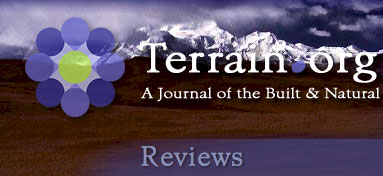
 |
|
|
Enthralled by Emptiness Ken Pirie reviews Absence and Light: Meditations from the Klamath Marshes by John R. Campbell
Campbell has little use for the tired media clichés of this frontier. In his words, we should “put our faith in the actual present, where it can thrive, rather than in the past, where it withers in worn-out soil. This is not to deny or devalue the past; it is only to say that our energy cannot be cycled there.” Campbell has focused his own energy on this meditative, mournful, yet passionate exploration of southcentral Oregon which he structures loosely around the broad themes of Absence, Presence and Intimacy. He starts by asking readers to imagine human absence from the Klamath Basin, as a way of starting to truly inhabit the place, although such a man-handled environment may be “utterly mysterious because it’s so completely known.” Addressing our culture’s worsening estrangement from the land, Campbell believes that we “require nature, and, being nature ourselves, it requires us.” To him, in the face of enormous change in the landscape, and in our lives, “we are only just removed enough to feel a nostalgia and to sense, perhaps, a dull remorse.” Delving into echoes of his personal history, Campbell resists this alienation and bares his soul to readers and to the land. To him, an intimacy with place may be an “actual feature of a meaningful death”—thus avoiding the apparent fate of Campbell’s parents, who succumbed to disease, madness and alcoholism in his Midwest birthplace. Watching from the marsh edge, Campbell recalls Barry Lopez’s words: “The edges of any landscape… quicken an observer’s expectations… it’s part of the shape of human curiosity”. Indeed, Campbell notices that: “I’m finding, in the presence of birds, a periphery where something dances almost unperceived…the whole swarms with energies and nuances that only the expansive earth can contain.” As he watches, Campbell wants to inhabit the lives of these others…and surrender to his animal self:
Campbell espouses a deeply spiritual philosophy, but he advocates a return to a worship of earthly gods, of something less remote and abstract than conventional religion. “Can you imagine it?” he irreverently asks, “Heaven as a heavenly body. Heaven as earth, our predestination and our great reward.” To him, favoring an isolated patriarch God “cheapens the body and invites the actions that obliterate tribes and entire species.” Campbell’s temple is instead the earth itself: “Among the shadows that jostle between flames, I huddle in hope of the only salvation: deliverance to exactly where I am.” Wordsworth suggested that one of the qualities that makes a poet is a “disposition to be affected more than other men by absent things as if they were present.” Campbell is sometimes “enthralled by emptiness” but is also mournful of lost throngs of birds, cougars, native tribes, asking “who ordered these Indian deaths? Who drained Tule Lake…? How can I trust such disregard? My mind swirls with crude grief.” And, “we call it reclamation when we drain marshes…as if something was once taken away from us.” But to Campbell, the alternative, the idea that we are “stewards of the earth” is another symptom of human arrogance—we cannot possibly understand such a large and mysterious system and we should be wary of our capacity to harm. This is a strong warning for those who would advocate more public land management in the region, especially considering who now controls the agencies, at least for the next two years. He takes solace that the Klamath Basin is often where “vast clouds and empty spaces sweep the human away.” This is an engrossing book, but is perhaps best treated as verse, to be picked up and savored one short chapter at a time. Campbell draws on a wide range of literary and poetic influences such as Rilke, Thoreau, Merton, Jeffers and Dogen, and his spare, elegant yet forceful notes are recommended for those curious enough to peel back the controversy and see the hidden context to the troubles of the Klamath Basin, this “poignant ground for unfathomable pockets of life.”
|
|
||||||||||||||||||||||||||||||||||||||||||||||||||||||||||||||